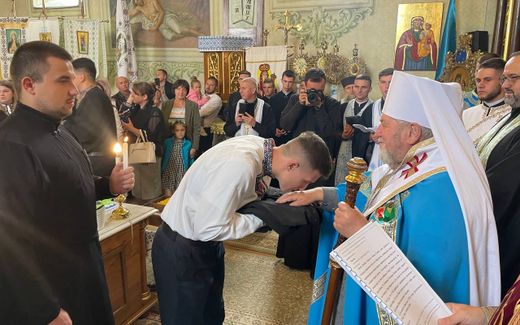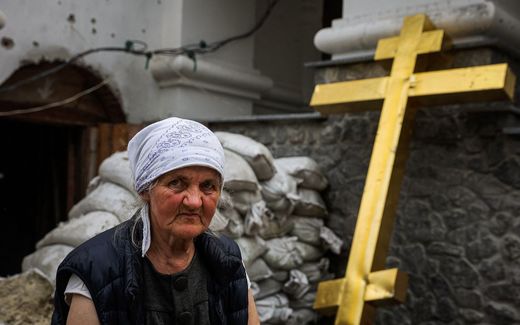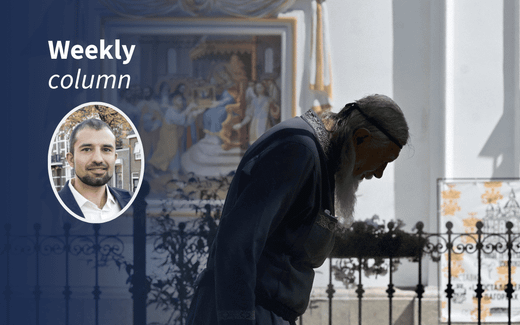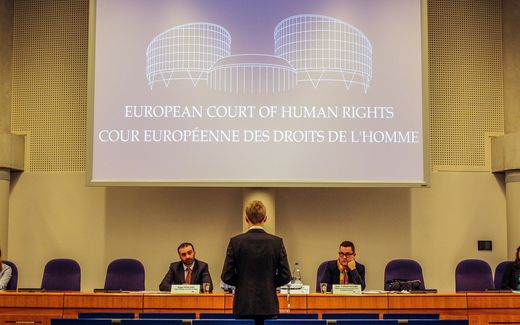Russian parliament tries to ban house churches
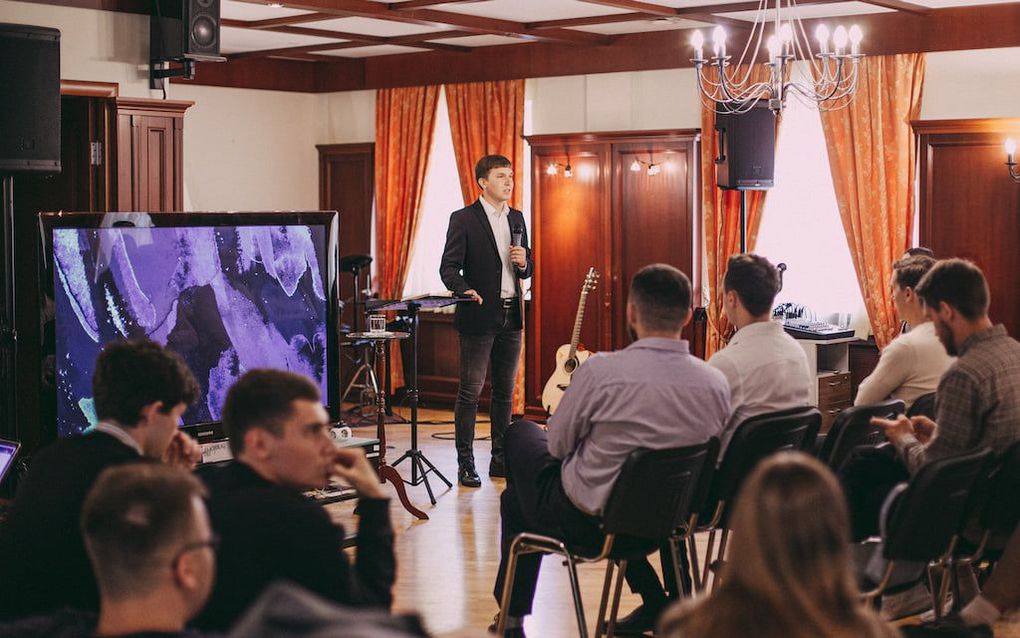
Small house churches are in danger. Photo Facebook, Russian Pentecostals
Eastern Europe
The Russian Parliament is trying to ban worship services not held in special religious buildings. For Russian Protestants, the consequence could be a latent form of religious persecution, Vitaly Vlasenko said last week from Moscow. He is Secretary General of the Russian Evangelical Alliance (REA).
Stay up to date with Christian news in Europe? Sign up for CNE's newsletter.
On October 30, 2024, a bill was introduced to the State Duma proposing a ban on worship services in non-residential premises of apartment buildings.
The initiative of the New People deputies in the Duma has sparked active discussions among religious leaders, especially Muslims and Protestants, who often hold prayers on such premises due to the lack of specialised buildings.
The authors of the bill argue that religious gatherings in apartment buildings can create inconveniences for residents and provoke domestic conflicts. Vlasenko’s press release refers to three grounds the politicians put forward:

First, Public safety The accumulation of strangers, including illegal migrants, can increase the risk of worsening crime rates and cause concern about public order.
Second, Fire safety The presence of a large number of people in non-residential premises of residential buildings violates fire safety regulations, which creates a threat to residents.
Third, Residents’ comfort Neighbors may experience inconveniences due to noise and increased flow of people, which can also lead to domestic conflicts.
In short, you could say that the authors of the bill see worshippers as a threat to the safety of residential areas.

Historical context
The Evangelical Alliance makes clear that it is not new that the Russian state is trying to limit the number of places of worship. Five years ago, in November 2019, attempts were already made to ban religious services in private homes. “Thanks to the efforts of lawyers and human rights activists led by Vladimir Ryakhovsky, the Constitutional Court of the Russian Federation recognised such initiatives as unconstitutional.”
The court emphasised that the performance of religious rites meets the spiritual interests of citizens and is of great importance for small religious organisations that do not have their own public property. Thus, the current bill may also violate the constitutional rights to freedom of conscience and religion, Mr Vlasenko suggests in the REA’s press release.
Many Evangelical (Protestant) communities indeed do not have separate premises for worship, the REA says. That means that gathering in a house is both logical and usual.
Pastor of the Moscow Baptist Church Alexander Fedichkin notes: “The planned ban on holding worship services in non-residential premises located in residential buildings deprives believers of the right to freedom of assembly”, he says. “It is in the interests of the state to create conditions for the comfortable existence of all organisations caring for its welfare, including Protestant churches.”

Another pastor of an Evangelical Church, Sergei Filinov, adds that “the proposed changes will create significant difficulties for the activities of many religious organisations.”
He thinks the proposed measures are not necessary at all since there are already enough guarantees regarding comfort and safety. “In our country, there are many non-residential premises in residential buildings that are legally used by religious organisations”, he says. “If the activities of a particular organisation threaten public order, then there are already regulations and laws to resolve such issues.”
Faith
Representatives of the Seventh-day Adventist Church also expressed concern. “Adventists are categorically against this bill”, pastor Oleg Goncharov said. “It violates the principles of freedom of conscience, as stipulated in the Constitution of the Russian Federation. If we follow the logic of this law, then shops, clubs, restaurants, etc, should be removed from residential buildings. In the current difficult time for Russia, this bill will only worsen the situation, creating the ground for social and interfaith conflicts. Religion cannot be separated from people’s lives. Religious faith is human life. Faith is where people live!”
Vladimir Ryakhovsky, a well-known human rights activist and lawyer in Russia, has previously successfully defended the rights of believers in the Constitutional Court of the Russian Federation. His experience shows that such legislative initiatives may contradict the Constitution and violate the rights of citizens to freedom of conscience and religion.
Sergey Ryakhovsky, leading bishop of the Russian United Union of Christians of the Evangelical Faith (Pentecostals), is also unhappy with the draft law.
He noted that the ban on holding religious services in non-residential premises of apartment buildings could seriously limit the opportunities of many religious communities, especially those that do not have their own meeting places.
Advice
The Advisory Council of the Heads of Protestant Churches of Russia (ACPCR) is actively involved in the dialogue with the federal government on this issue. In its appeal, the Council expressed deep concern, noting that the bill violates the rights and threatens the activities of not only Protestant churches but also other confessions in the country.

The Council emphasised that non-residential premises in apartment buildings have been used for religious services for many years without widespread complaints from citizens and called for the bill to be withdrawn from consideration.
In conditions where religious and public organisations play a key role in maintaining the moral and ethical values of society, their activities should be supported by government agencies, the ACPCR argued.
The Russian Evangelical Alliance is creating a platform for expressing a wide range of opinions and will continue to work in this direction. It calls on all interested parties –religious leaders, legislators and representatives of the public– to work together to find reasonable solutions that would protect the rights of believers and take into account the interests of all citizens.
Vitaly Vlasenko, General Secretary of the REA, hopes that the Advisory Council of the Heads of Protestant Churches of Russia, with its significant capabilities, will play a key role in this important discussion for society.
Orthodox
The Russian Orthodox Church believes that the bill banning religious rites in residential and non-residential premises of apartment buildings needs to be revised. The adoption of this bill will otherwise lead to the closure of Orthodox house churches and will threaten the performance of religious rites at home at the request of seriously ill patients. This was stated by the head of the legal department of the Moscow Patriarchate, Abbess Ksenia (Chernega).
The bishop of the Lutheran Church of Russia, V.A. Provorov, said: "For a believer, it is natural to be in communion with God at any time and in any place. It is valuable to be with fellow believers!"
"A living, sincere faith does not destroy or poison the life of one's neighbour. Throughout human history, there have been regular attempts to legislatively impose certain boundaries on the worship of God, or to ban it altogether. Truth is always with God. In Russia, there are enough legal opportunities to suppress illegal actions and not interfere in areas where people's rights are not violated."
Related Articles


